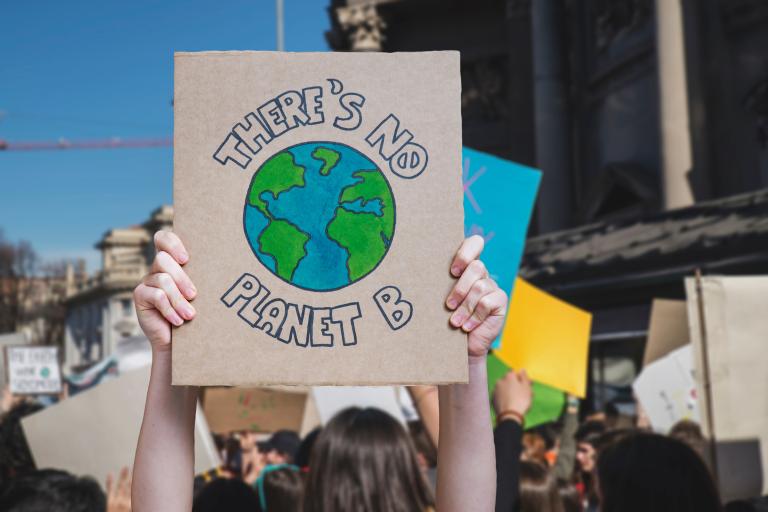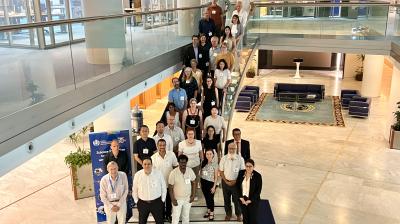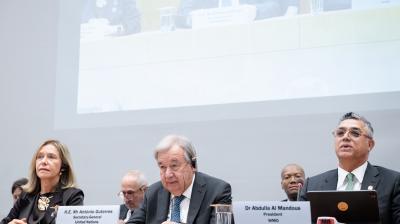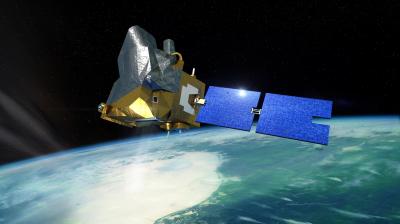G3W Newsletter (Q2 2024)
G3W Implementation Phase officially starts
Thanks to the efforts of the Joint Study Group on WMO Greenhouse Gas Monitoring (SG-GHG), co-chaired by Professor Gregory Carmichael and Doctor Vincent-Henri Peuch, the G3W Implementation Plan (IP) has been approved by INFCOM-3 (the WMO Technical Commission for Infrastructure) and EC-78 (the Executive Body of WMO). We are pleased to announce that the G3W Implementation and Pre-Operational Phase (IPP, 2024-27) has officially commenced.

INFCOM-3
On April 19th, 2024, the G3W Implementation Plan was approved by INFCOM-3 through the Recommendation 7.2/1, after the plenary session carefully examined all elements of the plan. The transition of Research to Operational (R2O) activities for G3W was discussed in detail and the plan highlights actions to strengthen capacity development and reduce technology gaps in GHG surface-based measurements. An Operational to Research (O2R) will guarantee continuous development in coordination with WMO Research Board (RB).
EC-78
On June 10th, 2024, the G3W plans were unanimously endorsed by the WMO Executive Council (EC-78) through Resolution 3.2/1. This resolution marks the beginning of the G3W implementation phase, including forming a G3W Joint Advisory Group (AG-G3W), co-chaired by INFCOM and Research Board, with the support of SERCOM. The AG-G3W will guide the implementation, with appropriate involvement of external stakeholders, and will be supported by the Climate Policy Advisers (CPA) of the Policy Advisory Committee (PAC) for the outreach and positioning at UN level.
For the 2024-2027 IPP, G3W will focus on:
- Forming a joint advisory group AG-G3W,
- Forming the Expert Teams and Task Teams on observation, modeling and
data management, - Implementing priority deliverables based on the endorsed plan of EC-78,
- Taking the first step of the G3W Resource Mobilization (RM) as part of the WMO RM Strategy approved by WMO Financial Committee FINAC-44
G3W IP: priority deliverables
The priority deliverables for the advancement of G3W implementation are given hereafter :
Capacity building needs have been surveyed to assess the feasibility of the implementation, with 61 Member countries already responding and a 2nd survey analysis currently in progress.
Resource mobilization for G3W
The flagship funding scenario of $1 billion over the financial period 2024-2027 is the target of G3W resource mobilization. To realize this ambitious goal, G3W is seeking a concrete approach to mobilizing funding resources from various donors, including member countries, climate funds, philanthropy, and the private sector.
On the international public partnership side, G3W has already received support from two WMO Members in 2023 (namely Denmark and Germany) and a new circular letter has been issued in 2024, requesting further support for G3W.
On the public-private partnership side, the Climate Finance for Climate Action Book Series marks an initial step with Nature Springer, Barclays Bank and University of Zurich involvement and discussions for partnerships with Google.org and other philanthropic donors are ongoing.
Past and upcoming events
Past Events
In the 2024-2027 G3W Implementation Phase, it is crucial for global coverage that G3W Space Remote Sensing components are well coordinated. G3W Director Gianpaolo Balsamo presented G3W at the CEOS and CGMS spring 2024 meetings, focusing on G3W’s synchronization with space agencies and the ongoing collaborations.
Upcoming Events
G3W will take part in two IPCC TF Expert Meetings to highlight the plan of action including Observation networks, Prior Information, Modeling, and Data Architecture. GGMT-2024, organized by WMO and IAEA, will comprehensively address measurement techniques of GHGs.
Further relevant news
The FOCI project, “Non-CO2 Forcers and their Climate, Weather, Health, and Air Quality Impacts,” co-funded by the EU and UK Research and Innovation (UKRI) with WMO as a key partner, aims to assess and model the origins and impacts of key non-CO2 radiative forcers like CH4 and N2O. The project is now in its second year.
Carbon Mapper and MethaneSAT, two new satellite programs led by the private sector, highlight how public-private partnerships will be crucial for tracking emissions at a global scale. These satellites provide a complementary view of methane emissions, enhancing the monitoring capabilities needed to support climate action.
They talk about us
Fluxes, The European Greenhouse Gas Bulletin by ICOS, devoted an article about G3W in the third issue in its series (p.48). A fine presentation of the importance of taking action, the project itself and the context in which it would be implemented.









